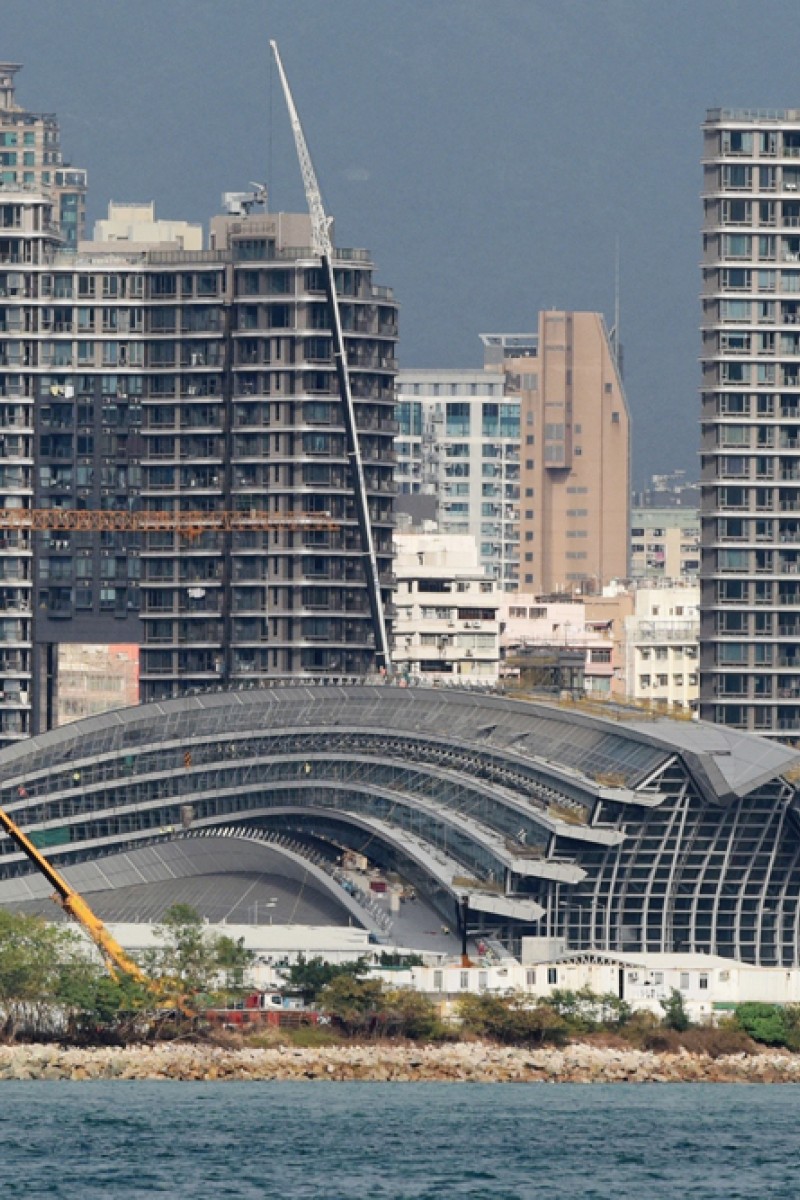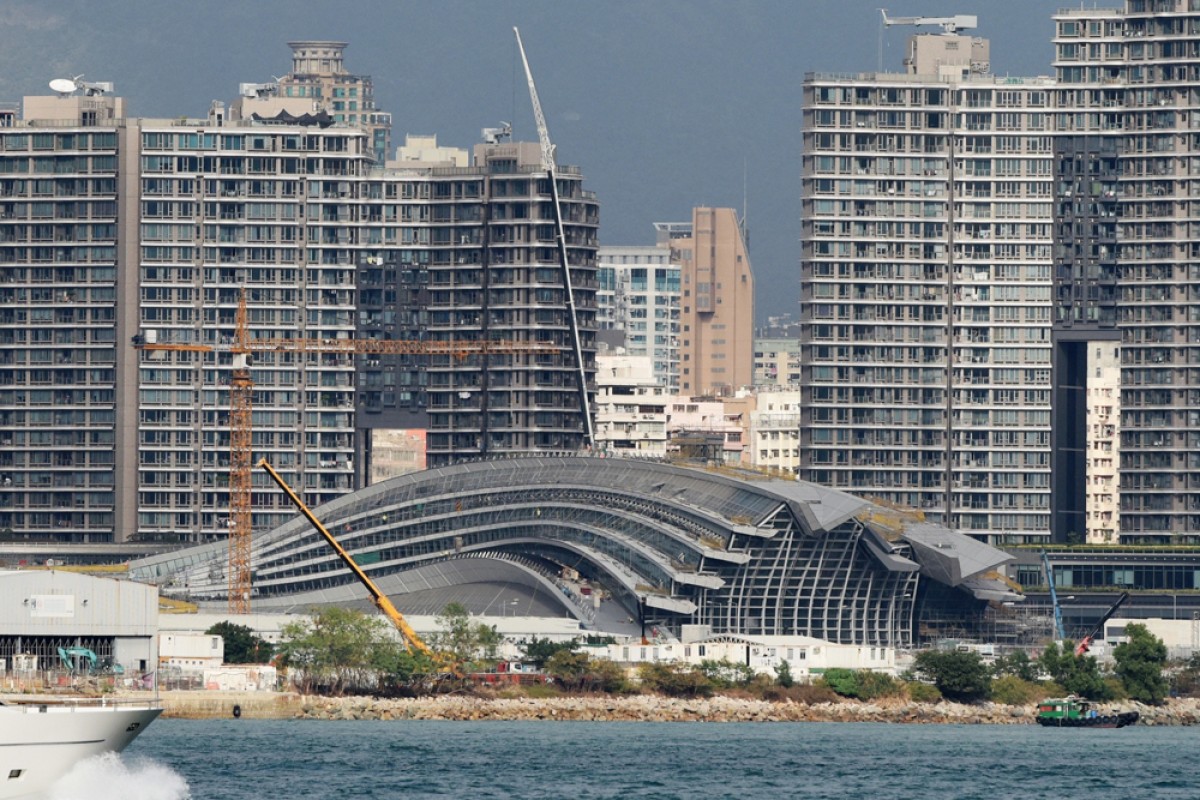
The planned joint immigration checkpoint at the station will not take away the rights enjoyed by Hongkongers, mainland officials say
 West Kowloon station will have a joint immigration checkpoint with both Hong Kong immigration officers and mainland police stationed there.
West Kowloon station will have a joint immigration checkpoint with both Hong Kong immigration officers and mainland police stationed there.China has said that Chinese officials will be able to carry out mainland law in part of a new railway station in Hong Kong that will connect the city to two mainland cities.
A high-speed railway, the Guangzhou-Shenzhen-Hong Kong Express Rail Link, is due to open next year. The mainland’s top legislative body said on Wednesday that officials will be able to enforce mainland law in part of the West Kowloon station.
However, the proposal for a joint immigration checkpoint, which would see mainland police and other officials stationed at the new station on the harbourfront in Kowloon, has intensified fears that Beijing is tightening its grip on the city. An immigration checkpoint is normally placed between two countries, or at an airport or a station, and is where people are checked before they can come or go.
The Standing Committee of China’s National People’s Congress (NPCSC) approved the project.
“The NPCSC session said the arrangements are in line with the principle of ‘One country, two systems’, the constitution, and the HKSAR Basic Law,” state news agency Xinhua reported.
The immigration checkpoint would not affect “the high degree of autonomy, nor impair the rights and freedoms enjoyed by residents” of Hong Kong, Xinhua said, adding that the rail link would promote the city’s economic development.
Li Fei, a high-ranking Beijing official, said on Wednesday that decisions by the Standing Committee are “unquestionable” and “have the highest judicial power”.
Hong Kong supporters of the rail project say the joint immigration checkpoint will be no different to arrangements overseas, such as at the Channel Tunnel linking Britain with France.
But pro-democracy politicians in Hong Kong expressed dismay.
Legislator Tanya Chan said the plan was the “most serious violation” of the Basic Law since the handover of Hong Kong from Britain back to the mainland in 1997.
“This is the first time that the NPCSC spoke out so nakedly to affirm its supreme power over Hong Kong,” said Civic Party chairman Alan Leong.